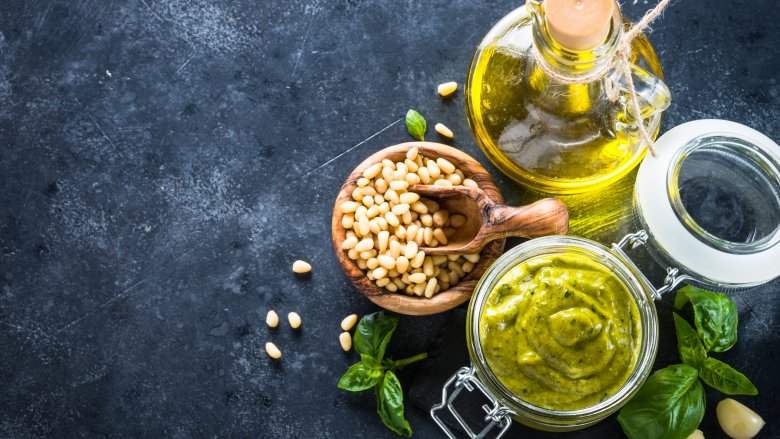What Is Pine Mouth, The Syndrome That Makes Everything Taste Metallic?
If you've never heard of pine mouth, consider yourself lucky. Some people who consume pine nuts will be affected by this syndrome, which means that pesto (and other delicious recipes that use pine nuts) are pretty much off-limits. But what is pine mouth, and what can you expect if you're unlucky enough to experience it?
Pine mouth is also known as Pine Nut Syndrome and it's very real. The FDA investigated the phenomenon in 2011 after a litany of complaints fluttered in to the agency. They analyzed pine nut samples from customers with complaints to make sure there was no quality control or bacterial problem with the nuts themselves, and to see if they could determine the origin of the problem.
As it turns out, pine mouth is not an allergic reaction — instead, it's a type of food reaction that, when pine nuts are consumed by some people, results in a bitter metallic taste that pops up within 12 to 48 hours (those who reported the issue noted that the nuts themselves didn't taste rancid or bitter). This can persist for weeks, and can also make eating and enjoying other foods extremely difficult during a reaction (via HHS Public Access Nutrition Research).
Though some studies have been done, there is no conclusive reason for why some experience pine mouth. There may be a genetic component, but the bottom line is that those who suffer from this syndrome aren't likely to consume pine nuts willingly ever again, which is completely understandable. The only treatment available is complete avoidance of pine nuts, much as one would do for a food allergy.
The good news for everybody else is that this only affects a very few people who eat pine nuts. If you've eaten pine nuts (or something that features them as an ingredient) and experience this unpleasant sensation, now's the time to vow to never eat them again. It's unlikely to get better, and while it's not harmful in the way that a food allergy is, the following weeks will be far less delicious.
